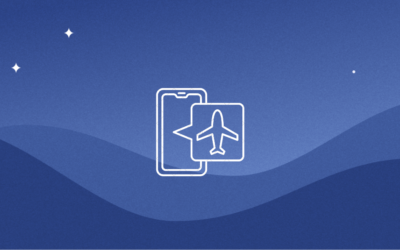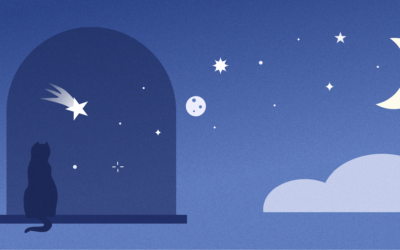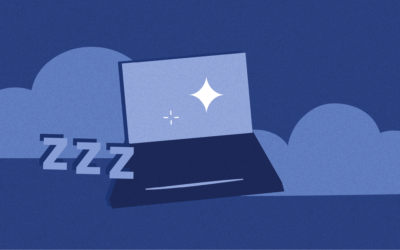Sleep disorders continue to affect a lot of people across the world, in fact, more than 70 million people just in the USA struggle from them. The field of sleep is complex and there are so much research and studies being conducted to better understand the symptoms, causes and best treatments for sleep disorders. There are several organizations that are at the forefront of studying sleep and advancing the field of sleep medicine.
Today, there are over 80 recognized sleep disorders, where some are more common than others. People with various types of disorders may constantly struggle to sleep, have trouble staying asleep, wake up in the middle of the night and are unable to return to sleep and others wake in the morning feeling tired. Here are the most common sleep disorders that could disturb your quality night sleep.
Table of Contents
Insomnia
Insomnia is one of the most common sleep disorders. It is known, that about 10 per cent of Americans reported suffering from chronic insomnia. Insomnia is characterized as having difficulty falling asleep and staying asleep. People with insomnia are likely to experience one or more of the following symptoms:
- Difficulty falling asleep
- Waking up in the middle of the might and having trouble returning to sleep
- Waking up too early in the morning
- Feeling tired upon waking
Insomnia can be categorized into two types:
- Primary insomnia: this is insomnia that is not directly associated with any other health condition.
- Secondary insomnia: this type of insomnia means that the person is having sleep problems that are associated with something else such as an illness or the medication or alcohol problems, etc.
Insomnia is also categorized as acute and chronic insomnia.
Acute insomnia is short-term while chronic can last a long time. Acute insomnia can actually last from one night to a few weeks. Generally, one is diagnosed with chronic insomnia if it lasts for at least three nights a week for three months or longer.
Good sleep habits can be used for preventing and curing acute insomnia.
Treatment for chronic insomnia starts by first treating any underlying conditions that are causing insomnia. Behavioural therapy is another remedy for this sleep disorder.
Obstructive Sleep Apnea
Obstructive sleep apnea is another prevalent sleep disorder. Many people with this sleep disorder do not even realize they have it. Obstructive sleep apnea occurs when something partly or fully blocks the upper respiratory system.
When that happens, a person’s breathing stops for a few seconds during the night. The blockage makes the diaphragm and the chest muscles to strain to open the blocked airway and pull air into the lungs. A person resumes breathing with a loud gasp or body jerk.
Obstruction of the airway can lower the flow of oxygen to vital organs thus leading to irregular heart rhythms.
Obstruction of the upper respiratory system can happen several times an hour for several seconds at a time. This, therefore, does not allow the brain time to get into deeper phases of sleep where the restorative process happens which prepares you for the next day. As a result, a person wakes up in the morning feeling tired.
There are several symptoms of sleep apnea including fatigue, night sweat, and headaches in the morning, dry mouth when you wake up, snoring and restlessness during sleep among others.
Sleep apnea can be treated by avoiding alcohol, using nasal sprays, sleeping on your side, oral devices and surgery if necessary.
REM Sleep Behaviour Disorder
Sleep has two distinct cycles, non-rapid eye movement (NREM) and rapid eye movement (REM). During REM sleep, there is irregular breath, blood pressure rises and the muscles are relaxed. A person with REM sleep behaviour disorder experiences sudden and intense movement during sleep. People with this sleep disorder tend to act out their dreams and they might talk, yell, punch, kick or jump out of bed.
The exact cause of REM sleep behaviour disorder is unknown, but it has been highly associated with alcohol or sedative-hypnotic withdrawal. Medication is often advised as a treatment for this sleep disorder.
Narcolepsy
Narcolepsy is a neurological disorder that inhibits the ability of the brain to control sleep and wakefulness. People with narcolepsy experience excessive daytime sleepiness whereby they fall asleep unexpectedly during the day. The unexpected sleep attacks can happen during any activity at any time of the day.
People suffering from narcolepsy typically have their REM sleep happen almost immediately in the sleep cycle and happens in different periods during the waking hours.
The exact cause of narcolepsy is not known, but there are scientists who associate it with the genes that control the production of chemicals in the brain. The chemicals may signal sleep and wakefulness cycles.
The most common symptom of narcolepsy is excessive daytime sleepiness which really interferes with your normal activities and can be very dangerous when you’re driving. One may also experience hallucinations and sleep paralysis.
There is no cure for narcolepsy, but its most common symptom, excessive daytime sleepiness can be controlled with drug treatment such as amphetamine-like stimulants.
Restless Leg Syndrome
Restless leg syndrome is a neurological disorder that causes one to have irresistible urge to move the limbs, usually when resting. People with RLS, experience sensations in the legs which are often described as creeping, aching, itching, pulling or burning. That’s why the only relief is the movement of the legs.
Restless leg syndrome can impact your sleep because of the constant urge to move your legs, and that’s why it has been classified as a sleep disorder. With this disorder, it becomes difficult to fall asleep and stay asleep.
RLS can lead to sleep loss can lead to other symptoms of sleep deprivation caused by other sleep disorders including reduced quality of life, memory loss, cognitive impairment, fatigue and excessive sleep disorder.
Regular exercise is a good treatment for RLS. Also if you are found to be having an iron deficiency, iron supplements will be prescribed. Caffeine can intensify RLS, so it is important to avoid caffeine-containing drinks as well as alcohol.
What to do if you have a sleep disorder
If you believe you’re suffering from a sleep disorder you should talk with your doctor about your symptoms. If the symptoms are signs of a sleep disorder, the doctor will prescribe relevant drugs if necessary or refer you to a sleep clinic.


